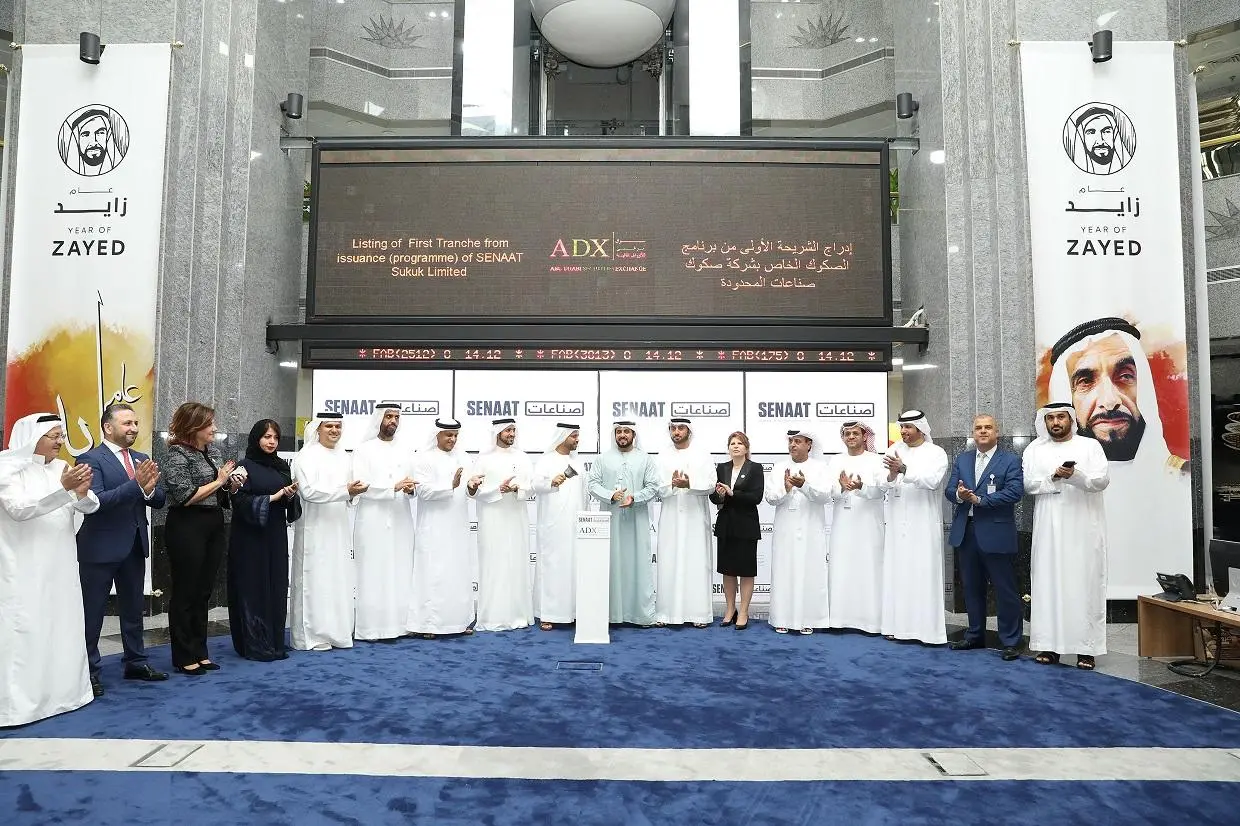PHOTO
Abu Dhabi’s General Holding Corporation (SENAAT) sees a potential for additional bonds issued next year after its most recent $300 million sukuk issuance, according to its chief executive officer.
The $300 million Shariah-compliant bond that was issued last month as part of a $3 billion trust certificate issuance program, was 10 times oversubscribed with dual listings on the Abu Dhabi Securities Exchange (ADX) as well as the London Stock Exchange, Senaat’s CEO said, adding that the sukuk proceeds will be used to finance existing debt, particularly related to Emirates Steel.
“The structure of the deal is $3 billion, but we opted to start with that small amount ($300 million). We always review our capital structure, sources and the pricing and we always try to balance our steps in order to have a sustainable and robust financial position,” Jamal Al Dhaheri, CEO of Senaat, told reporters on Sunday at an event held at Abu Dhabi Securities Exchange.
“We need to appreciate that this is the first time for us to go for a sukuk and the timing was in a very tough market position where we wanted to test the market and to introduce Senaat to the international market,” he said.
“The reason for us having it structured that way is that there is a potential (for additional bonds) in our next review. At the moment, we have different sources for accessing any capital need,” he added.
Last month, New York-based rating agency Moody's Investors Service has placed “A3” long-term issuer rating to Senaat, and it also assigned a (P)A3 rating to the company’s $3 billion trust certificate issuance program created under a Cayman Islands special purpose vehicle.
This month, Fitch Ratings assigned the company’s $300 million sukuk trust certificates a final rating of 'A'.
Al Dhaheri said that 65 percent of the sukuk issuance was subscribed to by investors from the Middle East and North Africa. Of the remaining 35 percent, 22 percent of investors were from Europe and 13 percent from Asia.
“Half of the investors were banks, and the remaining half were pension funds, insurance companies, and so on. The total was 134 investors from 24 countries,” he added.
“We aim to direct the $300 million raised in the issuance to refinance existing debt, specifically targeting Emirates Steel, and to diversify sources of financing,” he said.
Al Dhaheri, however, declined to comment on talks of a potential IPO for Senaat.
“We are part of Abu Dhabi’s vision 2030, and the government is trying to diversify its sources of revenues, and part of that involves investing in the industrial sectors and supporting it,” he noted.
Senaat is fully owned by Abu Dhabi government and its subsidiary companies include Emirates Steel, National Petroleum Construction Company (NPCC), Arkan, Ducab, and Agthia, among others.
(Reporting by Nada Al Rifai; Editing by Michael Fahy)
(nada.rifai@refinitiv.com)
Our Standards: The Thomson Reuters Trust Principles
Disclaimer: This article is provided for informational purposes only. The content does not provide tax, legal or investment advice or opinion regarding the suitability, value or profitability of any particular security, portfolio or investment strategy. Read our full disclaimer policy here.
© ZAWYA 2018




















